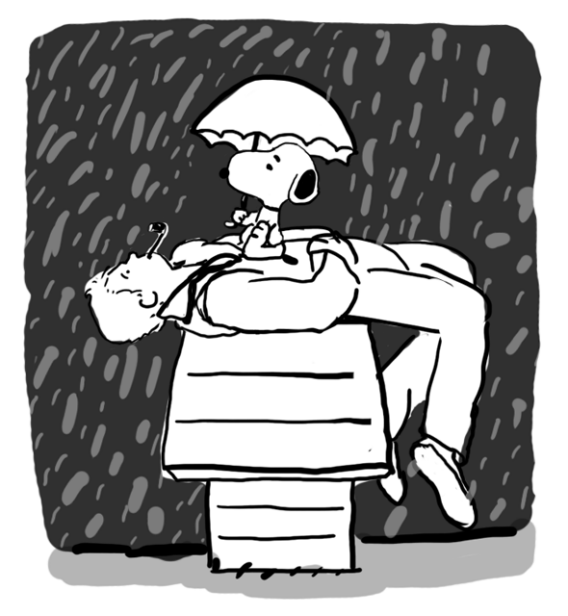So how do we produce readable and clean scientific writing? One of the good elements of style is to avoid adverbs and adjectives (Zinsser 2006). Adjectives and adverbs sprinkle paper with unnecessary clutter. This clutter does not convey information but distracts and has no point especially in academic writing, say, as opposed to literary prose or poetry.
—Adam Okulicz-Kozaryn, Scientometrics 2013
In “Cluttered writing: adjectives and adverbs in academia” (quoted above), Rutgers public policy professor Adam Okulicz-Kozaryn counts adjectives and adverbs in some samples of scientific writing and concludes that “social science” writing uses about 15 percent more adjectives and adverbs than “natural science” writing. He then wonders, “Is there a reason that a social scientist cannot write as clearly as a natural scientist?”
In the interest of science of all kinds, I decided to do some counting of my own. I wrote a program (a python script using NLTK) to calculate the parts of speech in a document and then tried it out on various samples of writing. Here’s some of what I found.
To start with, I wanted to use a piece of really cluttered prose—prose that is not at all “readable and clean,” to borrow a couple of adjectives from Dr. Okulicz-Kozaryn—which led me to Edward Bulwer-Lytton’s Paul Clifford. The website Phrase Finder tells us that the opening line of the novel is the “archetypal example of a florid, melodramatic style of fiction writing.” Here’s the full first sentence, the beginning of which you’ll recognize as the words that Snoopy was forever hacking out of his typewriter:
It was a dark and stormy night; the rain fell in torrents, except at occasional intervals, when it was checked by a violent gust of wind which swept up the streets (for it is in London that our scene lies), rattling along the house-tops, and fiercely agitating the scanty flame of the lamps that struggled against the darkness.
I put essentially the entire first chapter of this work into a file (minus the paragraphs that are mostly dialogue, much of which is in dialect) and came up with these results:
1,775 words, 184 punctuation tokens = 1,591 real words
108 adjectives = 6.8 percent
78 adverbs = 4.9 percent
186 adjectives and adverbs = 11.7 percent
So Bulwer-Lytton’s chapter is about 12 percent adjectives and adverbs. What should we compare this to? Well, Okulicz-Kozaryn cites William Zinsser’s On Writing Well as his authority for the cluttering nature of adjectives and adverbs, so let’s try the first three sections of that work (minus quotations from others, of course):
3,939 words, 439 punctuation tokens = 3,500 real words
241 adjectives = 6.9 percent
208 adverbs = 5.9 percent
449 adjectives and adverbs = 12.8 percent
Hmm. Maybe this is experimental error and Bulwer-Lytton’s writing is clear after all, if terribly overwrought. So let’s take a look at something by Jacques Derrida, whose prose is about as unreadable as anything I’ve ever encountered. Here’s the score for Chapter 2 of Of Grammatology (in English translation, of course):
19,239 words, 2,105 punctuation tokens = 17,134 real words
1,434 adjectives = 8.4 percent
946 adverbs = 5.5 percent
2,380 adjectives and adverbs = 13.9 percent
OK, that’s better. Derrida has 19 percent more adjectives and adverbs than Bulwer-Lytton. But he’s only got 8 percent more than Zinsser, and Zinsser has more than Bulwer-Lytton, so this still doesn’t all seem to be working out the way we were told it would.
How about another paragon? Okulicz-Kozaryn opens his paper with a quote from Mark Twain: “When you catch an adjective, kill it.” So let’s try the whole letter that the quote came from:
1,474 words, 170 punctuation tokens = 1,304 real words
89 adjectives = 6.8 percent
95 adverbs = 7.3 percent
184 adjectives and adverbs = 14.1 percent
Oops. We’re really going in the wrong direction here. Saint Mark uses the highest proportion of adjectives and adverbs that we’ve seen so far.
And what about Okulicz-Kozaryn’s own writing? Here’s the score for the text of “Cluttered writing: adjectives and adverbs in academia” itself (minus the quotations from others):
883 words, 80 punctuation tokens = 803 real words
85 adjectives = 10.6 percent
42 adverbs = 5.2 percent
127 adjectives and adverbs = 15.8 percent
We have a winner! Okulicz-Kozaryn’s text, about the importance of eliminating adjectives and adverbs from prose, has fully 35 percent more adjectives and adverbs than the “It was a dark and stormy night” passage, which has given its author’s name to an annual bad writing contest!
Of course, the problem is not in Okulicz-Kozaryn’s writing (despite the sprinkling of Slavicisms), but in his ideas. Calculating the relative percentages of adjectives and adverbs in texts tells us nothing useful about their readability, clarity, or efficiency.
I’ll spare you the results for the other 45 texts that I’ve tested, but just to let Okulicz-Kozaryn off the hook for the “most modifiers” prize, let me note that the text of Ben Yagoda’s piece from the Chronicle of Higher Education on adjectival anxiety (“The Adjective—So Ludic, So Minatory, So Twee,” Feb. 20, 2004), beats him out:
1,908 words, 301 punctuation tokens = 1,607 real words
208 adjectives = 12.9 percent
86 adverbs = 5.4 percent
294 adjectives and adverbs = 18.3 percent
Finally, there’s a technical flaw in the whole “avoid adjectives and adverbs” admonition. Nouns are often modified by other nouns, by prepositional phrases, and in other ways that don’t involve adjectives; and verbs are often modified by prepositional phrases, subordinate clauses, and so on. And if it were true that modification in general was a Bad Thing, then we’d need to count these other sorts of modifiers as well, not just adjectives and adverbs.
Then again, Fun With Dick and Jane is indeed readable and clean.
A version of this post originally appeared on Language Log.
